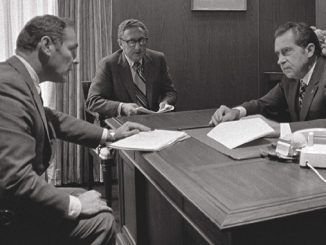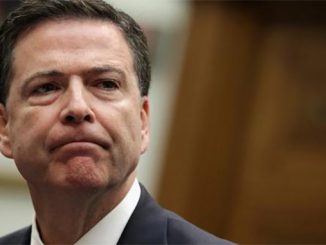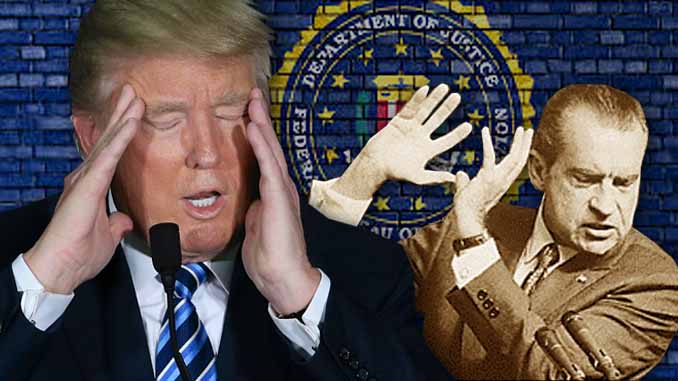
Nixon vs. Felt and Haig was a precedent for Trump vs. the FBI and Deep State.
By S.T. Patrick
When a Vanity Fair article by attorney John D. O’Connor appeared on May 31, 2005, one of America’s greatest political mysteries seemed answered. Mark Felt was Deep Throat. Bob Woodward’s key Watergate source was the number two man at the FBI, which, as Americans understood the story then and as it is pieced together now, meant that one of the top law enforcement agents in the country had just aided in bringing down a presidency. Felt had used the media, the covert guiding of Woodward—for motivations that still seem opaque—to take personal shots at the White House.
Fast-forward 15 years after the Felt revelation, and President Donald Trump finds himself mired in a political struggle with his own FBI, one that could end up with Trump’s ability to govern severely damaged. If many in the mainstream media see their desires to fruition, the battle with the FBI will lead, as it did with Nixon, to a resignation, if not impeachment and senatorial conviction.
In May 2017, nearly five months after Trump’s inauguration, the late Robert Parry, the founder of Consortium News, had already pegged the generic modus operandi of the mainstream controlled media.
Commenting on the hollow accusations of Russiagate, Parry wrote, “Those suspicions quickly hardened into a groupthink among many Democrats, liberals, and progressives. Their hatred of Trump and their dread about his policies convinced some that the ends of removing Trump justified whatever means were employed, even if those means had more than a whiff of McCarthyism.”
The FBI, according to Parry, had instigated Deep State wars against both Trump and Hillary Clinton during the campaign. It was former FBI Director James Comey who had strategically revealed the Clinton email scandal and then doubled down on it at key moments in the campaign. It was also Comey, who Trump controversially fired in May 2017, that used the now-discredited Steele dossier to instigate and publicize the Russiagate investigations. The Deep State was against Bernie Sanders, as well, but had already sabotaged his candidacy through rigged primaries.
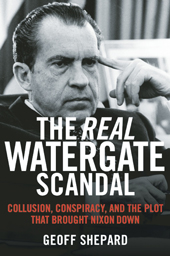
Who was palpable to the Deep State operators? Washington state Democrats cast three electoral votes for Gen. Colin Powell, the former secretary of state. Had the Trump delegates not been so loyal, which the manipulators predicted they wouldn’t be, the race could have been thrown to the House of Representatives, where the 435 members could have chosen from any of the top three. The three Washington delegates had—randomly or not so randomly—made Powell the third candidate, and the chosen one of the Deep State. The FBI has continued to flex its executive muscles throughout the first term.
When Richard Nixon took office, he almost immediately set up an internal national security state that included Henry Kissinger, the national security advisor, H.R. Haldeman, the chief of staff, and John Ehrlichman, the domestic affairs advisor. In doing so, he turned the secretaries of state and defense into formal diplomatic positions rather than decision-making ones. He crippled the military-industrial complex of his predecessors in order to set up his own trusted policy clique. When Nixon needed the FBI and the CIA in the aftermath of Watergate, they defied him for professional and personal reasons. Felt even turned on him and worked against the president. Depending on the source, Felt did so as a lead voice on a team of Deep Throats or as a sole leaker.
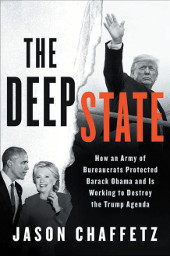
There is evidence that the FBI had been informed about Steele’s political and business motivations before the Comey firing. Why, then, did they continue to launch their extensive investigation the same month?
According to a CNN report, the Comey firing sent shock waves throughout the intelligence community. Deputy Attorney General Rod Rosenstein and senior FBI officials “viewed Trump as a leader who needed to be reined in, according to two sources describing the sentiment of the time.” The FBI wanted leverage. While Nixon had worked around D.C.’s northeastern elites that he had so personally despised, Trump confronted them mono et mono. Neither was acceptable to those whose decisions push billions of dollars around the globe and control the political and legal power structure of the world’s most vital economy. The FBI reaction post-Comey became even more overt.
Former FBI Deputy Director Andrew McCabe went on “60 Minutes” and said that, after the Comey firing, he and other FBI senior officials gathered to discuss the possibility of recruiting a cabinet secretary to float and then initiate the idea of removing Trump from office via the 25th Amendment to the Constitution.
This is a coup d’état led by the intelligence community, with assured support from the administration’s top military leaders. But it is not without precedent. When Haldeman resigned, Nixon appointed Gen. Alexander Haig as chief of staff. It would be the final nail in the coffin of the Nixon presidency. Moving actively but privately as Felt had continued to do, Haig worked against Nixon’s best interests and quickened the abdication. The “right man” had been put into place, and Nixon had appointed him. Will the FBI find their own “right man” to hasten Trump’s fall?
S.T. Patrick holds degrees in both journalism and social studies education. He spent 10 years as an educator and now hosts the “Midnight Writer News Show.” Email [email protected] to send your thoughtful comments.


